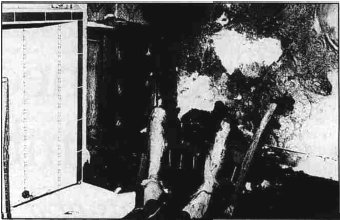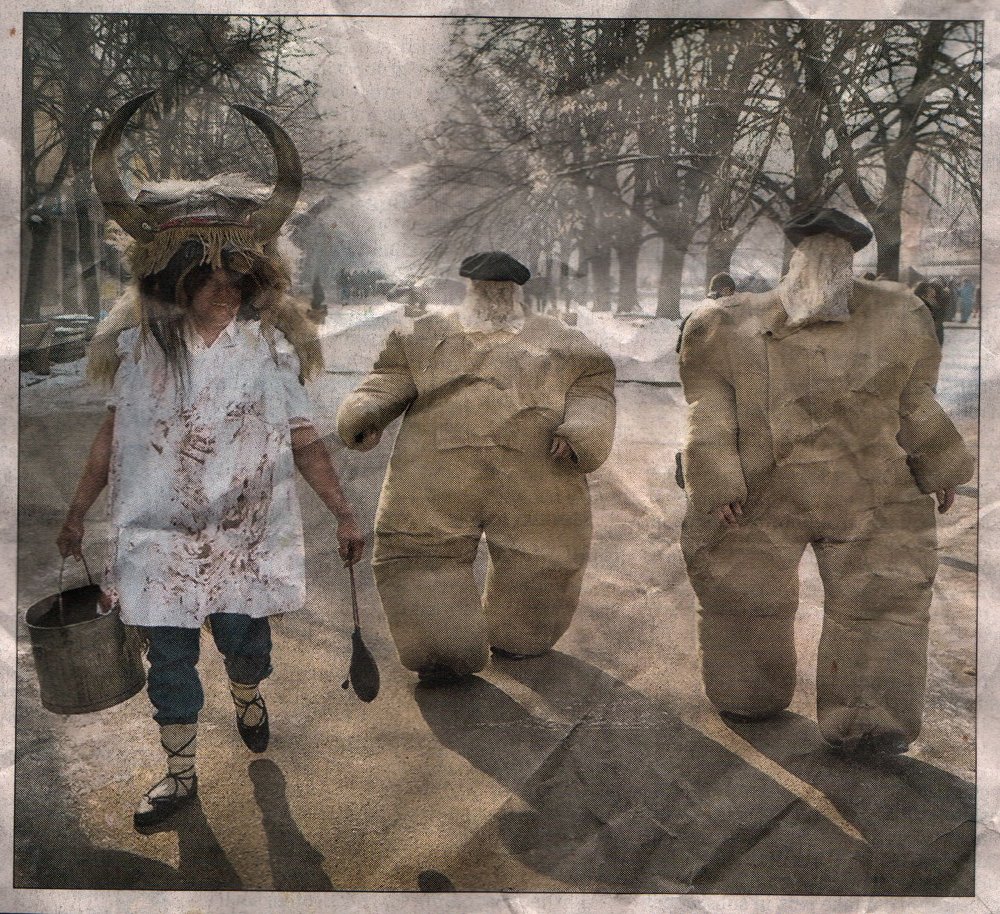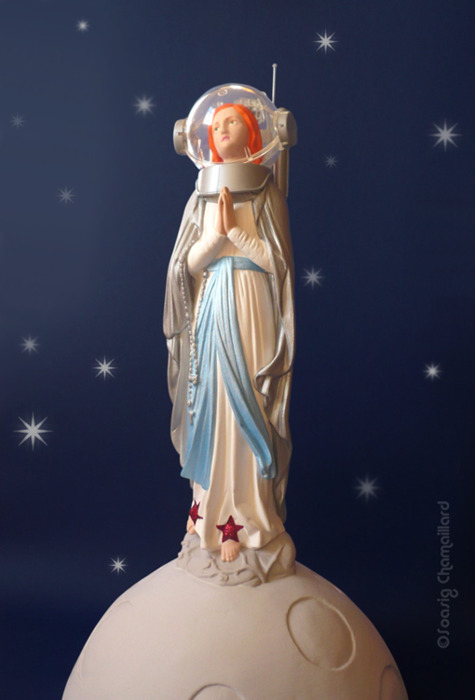The pointyhead detectives had very few adventures. Much of their time was spent reclining upon divans, cogitating, an activity not conducive to venturesome antics. And when not cogitating, they directed most of their energies towards the precise disposition of the divans within their so-called deduction chamber, an ill-appointed room off a remote corridor on an otherwise deserted storey of the police headquarters annexe on the far side of town. Sometimes they determined that the divans were best placed in regular geometric formation, at other times that they were best scattered higgledy piggledy in the available space. On Easter Sundays and other Christian festivals the pointyhead detectives experimented with divan-arrangements somewhere between orderly and chaotic. They had never been able to settle upon an optimum disposition, for they were only too aware that some crimes were best solved with the divans lined up in a row, or in a stellar pattern, while other crimes were cracked when the divans were arranged haphazardly. The one thing they all agreed upon was the effectiveness of their cerebral approach, as pointyhead detectives, reclining upon divans, smoking their pipes, looking to the untrained eye as if they were half-asleep and lost in lassitude.
So when a cub scribbler from Let’s Outwit Brainy Criminals! magazine was dispatched to police headquarters to interview the pointyhead detectives and to write up their adventures for a feature article, he was rapidly plunged into despair. There were only so many ways of describing a pointyhead detective reclining upon a divan, cogitating, before repeating oneself. Even discussions about the disposition of the divans were carried out quietly and thoughtfully and without rancour or fist-fights. The scribbler slumped in a corner of the deduction chamber and wept salt tears. He went unnoticed by the pointyhead detectives, who were sprawled on their divans cogitating about the latest enormity they were set to solve, the case of the poisoned well at Poisonwell.
The poor weeping scribbler was terrified that, unable to craft an exciting piece of prose from such unexciting material, he would be dismissed from his position. In those parts, at that time, it was the lot of dismissed scribblers to be sent to the frontier to dig drainage ditches. What could save him from such a fate? He had but one recourse, and that was to rely on the power of his imagination. The scribbler hurried back to his cubby and wrote a wholly fictional account of the pointyhead detectives.
Fighter jets screamed across the sky as the pointyhead detectives teetered on the edge of the erupting volcano, he scribbled. Boiling hot lava lapping at their stylish winklepickers, the doughty threesome foursome fivesome did doughty derring doings, with much shouting and screaming and ululating, but always with a purpose. Evil wrongdoers trembled in their hideaways as the pointyhead detectives came crashing down from the volcano at inhuman speed, armed with magnetic ray guns. The wind howled and the sun bashed the earth with brilliance as Captainette Cleothgard and the team commandeered a fantastically fast sports car and sped across the plains towards the scene of criminality. Not even the cataclysms of earthquake, monsoon, and the coming to pass of ancient Biblical prophecy could stop them. Swatting aside the locust swarms, the pointyhead detectives descended upon Poisonwell and nabbed the perp just as he tried to escape in his rocket ship.
“You’re nicked!” cried Lieutenantette Spivack, eschewing the bureaucratically-approved verbal rigmarole of less venturesome detectives.
“Foof-la!” exclaimed the Poisonwell Well-Poisoner, caught red-handed, “It’s a fair cop, and no mistake.”
There was much more in this vein, and the editor of Let’s Outwit Brainy Criminals! was delighted. Sales of the magazine soared, and in both fashionable salons and sordid middens, all anybody could talk about was the brave, charismatic pointyhead detectives. There was gossip about a feature film and a television series. The cub scribbler was commissioned to write further adventures, and he did not disappoint. Week after week, he recounted entirely fictional thrills ‘n’ spills about the fivesome, careful to slip in just enough real-world facts to give his yarns an air of verisimilitude. The fervour reached such a pitch that it eventually came to the attention of the notoriously dim Chief of Police. This bemedalled fellow, built like a walrus with a moustache to match, decided to pay a visit to his crack crime-fighting team in their ill-appointed room off a remote corridor on an otherwise deserted storey of the police headquarters annexe on the far side of town.
He was astonished, on that rain-lashed Thursday afternoon, to find the supposedly heroic pointyhead detectives reclining on divans, cogitating.
“Where is the doughtiness? Where the derring-do?” he wailed.
“Sssh!” hissed Captainette Cleothgard, “We are in the middle of solving the despicable slaughter of the innocents down by Sawdust Bridge.”
The Chief of Police flailed his arms to disperse the fug of pipe-smoke and shouted his head off.
“You ought to be down at Sawdust Bridge then, armed to the teeth, sniffing out clues, and ready to snap the cuffs on the perp after a spot of sickening violence, preferably at the very same time as a sea-monster emerges dripping from the river and wreaks havoc in the vicinity, as would happen in those popular magazine reports!” he cried.
So cerebral were the pointyhead detectives, so removed from the petty concerns of the workaday world, that they remained quite ignorant of their new-found fame. They had no idea what their Chief was talking about. Furrowing their brows even deeper, they sank further into the plush upholstery of the divans and cogitated more furiously.
Now the Chief of Police, like many a dim walrus-moustached official in fact and fiction, was not given to considered reflection. He made snap decisions, and blundered on regardless. So it was that he set a klaxon roaring, hustled the pointyhead detectives out into the rain, set fire to the divans, and had the deduction chamber locked and bolted, placing scary Hazchem signage outside it for good measure.
“Get thee hence to Sawdust Bridge!” he screamed, “And solve the crime in an exciting and blood-curdling manner! Or I’ll have your guts for garters!”
Perplexed and befuddled, the fivesome trudged away. As soon as they were out of sight of the Chief, they lay down on a sopping wet lawn, reignited their pipes, and resumed their cogitations. They were still cogitating, a few hours later, when the rain ceased and a shaft of brilliant sunlight broke through the clouds, illuminating, just behind them, a terrible scene. The cub scribbler, now grown rich and preening by dint of his success, was strolling across the lawn dressed to the nines in a top hat and a brand new silken Boffo Splendido Italianate suit, when he was set upon by a whirling tangle of ruffians, who beat him senseless with bludgeons and robbed him and stripped him of clothes and cash and chucked him into the swollen roaring river and cackled evil cackles as they did so and then went further marauding, attacking nearby orphans and puppies and glorying in their criminality.
Cogitating upon the wet lawn, the pointyhead detectives remained utterly oblivious to the enormities taking place just yards away. The clouds dispersed, and Thursday afternoon was sunny, with a light breeze.




